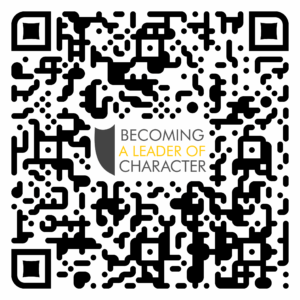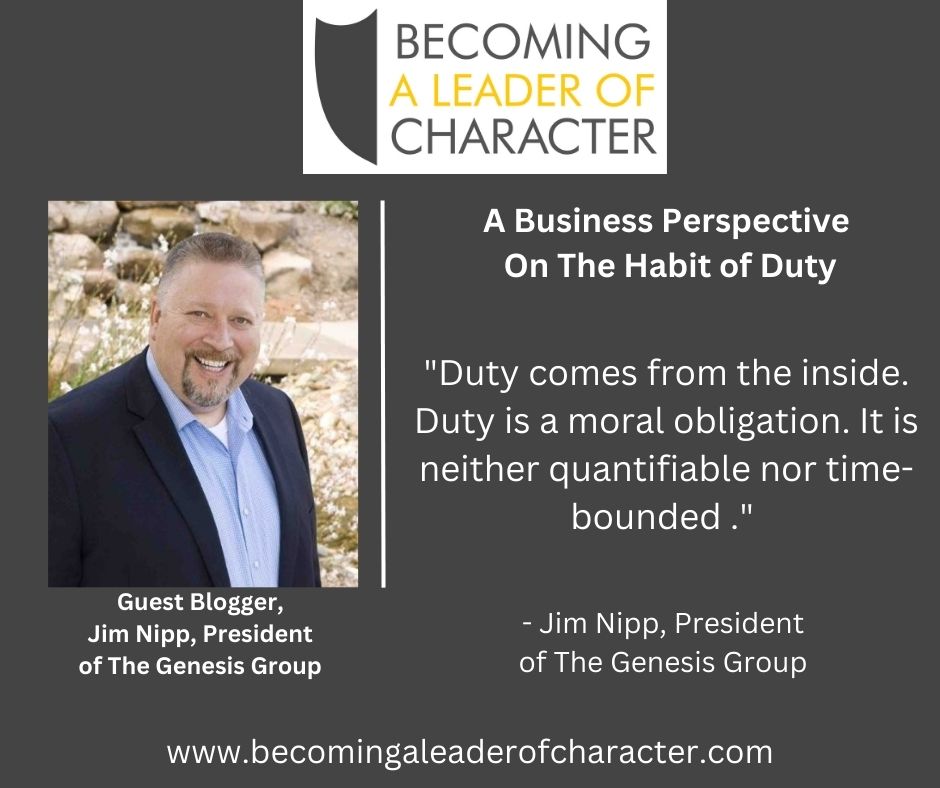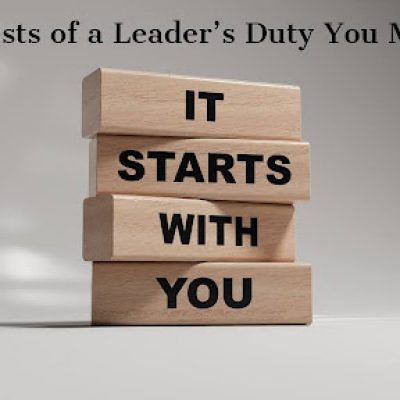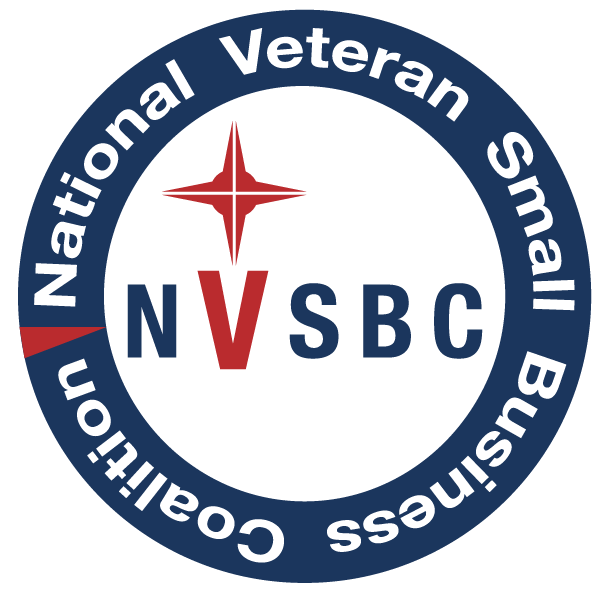Duty comes from the inside. Duty is a moral obligation. It is neither quantifiable nor time-bounded.
A strong sense of Duty is one of the elements that separates successful business leaders from everyone else. As business leaders, we all have a seemingly endless list of responsibilities. Let’s take a couple of minutes to learn the difference between the responsibilities we all execute and the actions we initiate out of a sense of Duty.
Dave Anderon’s book, Becoming a Leader of Character defines Duty as:
Taking action based on my assigned tasks and moral obligations.
For leaders, a responsibility is something you “owe” to your board, investors, lenders, employer, customers, or employees. Responsibilities might include a list of roles or tasks in your job description. Responsibilities are both measurable and quantifiable. Responsibilities come from the outside. Responsibilities are the assigned tasks described in the definition of Duty above. You might think of responsibilities as transactional – you perform this task or set of tasks, and you get that positive rating, bonus, or promotion in return.
Duty comes from the inside. Duty is a moral obligation. It is neither quantifiable nor time-bounded. Duty isn’t transactional – duties are often performed without any opportunity for reward or chance of recognition. A clear sense of Duty supersedes any sense of responsibility to others. A sense of Duty pushes you to go beyond the expectations of others because you alone measure your success or failure in displaying a sense of Duty.
It would help if you viewed duties as a privilege, not something for you to drudge through daily. Remember, you aren’t performing duties because you have to do them; you are doing them with passion and excellence because it is part of the higher moral code to which you hold yourself. Duty is part of your character. This attitude also fosters another Habit of Character – Positivity.
You’ll discover that most employees you encounter in your career will not display a strong sense of Duty. When you find someone that does exercise this character trait, you should hold onto them!
Also, we have a responsibility as leaders to avoid abusing employees that display a strong sense of Duty. Knowing someone is morally compelled to help/work/struggle without seeking glory obviously makes them an easy target for corporate mistreatment. A strong sense of Duty should be recognized, and above-level work rewarded. People with a strong sense of Duty towards their work don’t look for a lot of external validation, but it doesn’t mean they don’t deserve it. As a leader, you have a Duty to make sure they know how much you recognize their value to you as a leader and on behalf of your company.
We all have a Duty to do more than just take care of our responsibilities (assigned tasks) and exercise our moral obligations. When we do, we become people who lead organizations to follow our example. And leading by example is another moral obligation!
Jim Nipp is a Leader of Character who leads a Company of Character. I (Dave) have consulted with the leadership team of The Genesis Group since 2014 and seen the impact their focus on character has had on their culture and their business results. In fact, Jim tells the story of The Genesis Group’s cultural shift to a culture based on character in the early pages of our book – Becoming a Leader of Character. Jim has become a good friend and someone I rely upon to advise me as both a friend and a businessman. He is a model in his community for corporate philanthropy. He sees that as his moral obligation – his Duty.
To learn more about Jim click
Here is a quick assessment that will take you 5 minutes to figure it out. Nobody will ever see your results but you.
Warning: If you are not going to be honest with yourself this is a worthless assessment.

To take the assessment use the QR code above or go to www.MYCHARACTERTEST.com







